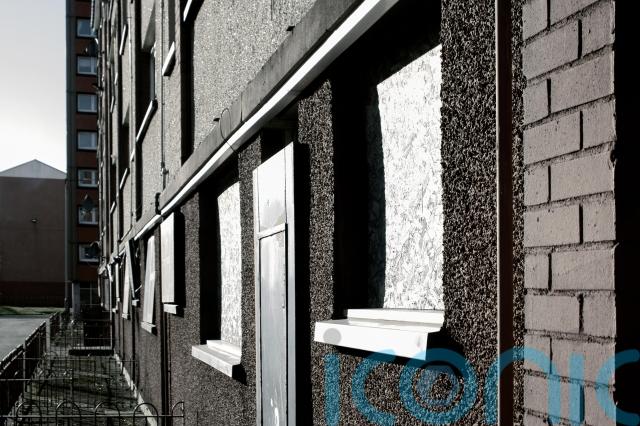
Scottish Labour have called on the Health Secretary to “get to grips” with tackling suicide before more lives are “avoidably lost”.
The call comes as figures showed people in Scotland’s most deprived areas were 2.7 times more likely to die by suicide between 2011 and 2021 than those in the most affluent areas, with 2,478 deaths in the poorest areas compared to 910 in the richest.
In that 10-year period, 8,330 people died from suicide with the “annual crude rate of suicide” falling from 17.6 people per 100,000 – 880 deaths – in 2011 to 14.2 people per 100,000 in 2021, according to the Public Health Scotland’s Suicide Information Database report.
Just under three-quarters (73%) of those who died were men and almost half (45%) were aged 35–54.
Scottish Labour mental health spokesperson, Paul Sweeney, said: “These statistics published today go to show how much more work needs to be done to support the mental health of the people of Scotland.
“That economic deprivation and gender continue to have such a clear impact on this issue is a real cause for concern.
“We know that more mental health support is needed – but action is needed as well to tackle the cost of living crisis and make work pay so that people do not fall into despair.
“Progress on re-building our NHS has been far too slow. We need Michael Matheson to get to grips with this issue before more lives are avoidably lost.”
The latest Scottish Suicide Information Database report is out today. Between 2011-2021, 8,330 individuals aged 5+ years died from suicide in Scotland and 78.4% had contact with at least one of 10 healthcare services.
More in the report:
➡️ https://t.co/1MgOvmkCOw#ScotSID pic.twitter.com/W7Poo4kggs
— Public Health Scotland (@P_H_S_Official) August 29, 2023
Professor Stephen Platt, Emeritus Professor of Health Policy Research at Edinburgh University, said in the report that deprivation is a “significant determinant” of suicide.
He added: “It is unclear whether this impact arises as a result of increased prevalence of mental ill-health…in more socio-economically deprived populations or whether poverty itself is an independent risk factor.
“More generally, the (report) findings highlight the importance of recognising that suicide has to be addressed as an issue of equity and social justice, as well as of mental health, requiring Government intervention to reduce socio-economic inequality, tackle socio-economic deprivation, reduce unemployment and maximise the creation of economically rewarding job opportunities.”
Scottish Conservative deputy health spokesperson, Tess White, said: “These figures are deeply concerning. Every single life lost as a result of suicide is a horrific tragedy and my thoughts are with those families who have lost a loved one in this way.”
She said it is “unacceptable that it is our poorest who are suffering the most”, adding: “SNP ministers must urgently investigate why the number of deaths as a result of suicide are so much more prevalent in our poorest communities, compared with deaths among our more affluent communities.”
More than three quarters (78%) of those who died by suicide in Scotland between 2011 and 2021 had contact with one of the 10 healthcare services recorded, either in the 90 days before death for those attending A&E, or in the 12 months before death for all other healthcare services, the report found.

Fewer than one in eight (12%) were discharged from psychiatric care either as an inpatient or day case in the year prior to death while one in four had been offered a psychiatric outpatient appointment in this time.
Professor Platt said: “These findings might raise concerns about a possible shortfall between the mental health needs of high-risk individuals and the supply of secondary care mental health services that meet those needs.
“However, this shortfall may be reduced, at least to some degree, by use of other services (e.g provided by the third sector) that are not captured in (the statistics).”
He added: “It is therefore highly likely that some of the shortfall between psychiatric need and supply was filled by a wider range of more generic, non-specialist services.
“Nonetheless, there appears to be a sizeable minority of the at risk population who are not in contact with healthcare services prior to death but who have unmet mental health (and other) needs.”
He said health service planners “will want to consider possible improvements to the organisation, reach and delivery of services targeted at groups at high risk of suicide, while healthcare providers will want to consider improvements to the identification, engagement and effective treatment of individuals at high risk”.
A Scottish Government spokesman said: “Every suicide is a tragedy which has a far-reaching impact on family, friends and the wider community.
“We are working hard to reduce the number of suicide deaths in Scotland, whilst tackling the discrimination and inequalities which contribute to suicide.
“To achieve this we must support our communities so they become safe, compassionate, inclusive and free of stigma.
“We welcome this ScotSID report on suicide trends as a contribution to the evidence base on probable suicides in Scotland. It will help to inform our policy and activity as we deliver the actions in our new Suicide Prevention Strategy published in 2022.
“Our aim is for any child, young person or adult who has thoughts of taking their own life, or are affected by suicide, to get the help they need and feel a sense of hope.”
Subscribe or register today to discover more from DonegalLive.ie
Buy the e-paper of the Donegal Democrat, Donegal People's Press, Donegal Post and Inish Times here for instant access to Donegal's premier news titles.
Keep up with the latest news from Donegal with our daily newsletter featuring the most important stories of the day delivered to your inbox every evening at 5pm.